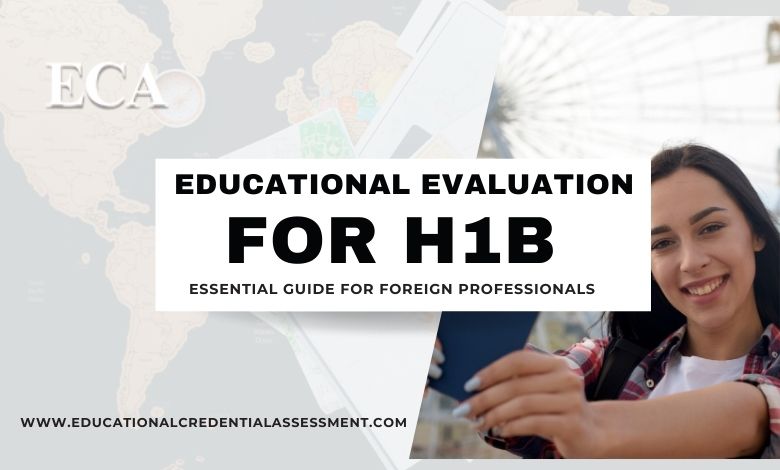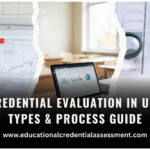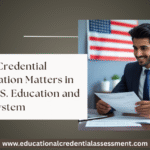
The H1B visa is one of the most sought-after visas for professionals looking to work in the United States. However, securing an H1B visa often involves a rigorous application process, especially if you hold a foreign degree. One of the critical requirements is educational evaluation for H1B, which ensures that your international qualifications meet the U.S. standards for your specific role. In some cases, an expert opinion letter for H1B might be necessary to support your application. This blog will guide you through the essentials of educational evaluation and how it plays a crucial role in obtaining an H1B visa.
What is Educational Evaluation for H1B?
An educational evaluation for H1B is a detailed analysis of an applicant’s academic qualifications from a foreign institution. This evaluation assesses whether the foreign degree is equivalent to a U.S. degree required for the H1B position. The United States Citizenship and Immigration Services (USCIS) requires this evaluation to ensure that the applicant’s education aligns with the professional standards necessary for the specific job role.
Why is Educational Evaluation Important for H1B?
Educational evaluations are crucial because they serve as proof that your foreign academic background meets U.S. standards. Without this evaluation, USCIS may not recognize your foreign credentials in the USA, which could lead to a denial of your visa. This is especially true in technical and specialized fields where the educational background plays a significant role in determining eligibility.
Key Benefits of Educational Evaluation for H1B:
- Validates the equivalence of your foreign degree to a U.S. degree.
- Provides clarity to employers about your educational qualifications.
- Increases the chances of a successful H1B petition.
- Helps to meet specific job requirements listed by USCIS.
Expert Opinion Letter for H1B: When and Why You Need It
In some cases, educational evaluations alone may not be sufficient, especially if your degree doesn’t directly match the job description or if there are doubts about your qualifications. This is where an expert opinion letter for H1B becomes necessary. This letter is a detailed assessment provided by a recognized industry expert who reviews your education and work experience to determine if they meet the job requirements.
An expert opinion letter is often required in the following situations:
- When there is a mismatch between the applicant’s degree and job field.
- If the degree is from a non-traditional institution.
- For specialized occupations requiring additional validation.
- When responding to a beneficiary qualification H1B RFE.
How to Obtain an Educational Evaluation for H1B
Obtaining an educational evaluation involves submitting your foreign academic transcripts and diplomas to a credential evaluation agency. Here’s a step-by-step process to guide you:
- Choose a Reliable Credential Evaluation Agency: Make sure the agency is recognized and accredited by relevant organizations. At Document Evaluation, we specialize in evaluating foreign degrees for H1B visas, ensuring accurate and reliable assessments.
- Submit Required Documents: Provide your transcripts, diplomas, and any other relevant academic documents.
- Evaluation Process: The agency will compare your foreign qualifications with U.S. educational standards. This may involve reviewing course content, credit hours, and academic level.
- Receive Your Evaluation Report: The final report will outline the U.S. equivalent of your degree, which can be submitted as part of your H1B application.
Responding to an RFE with an Expert Opinion Letter
Sometimes, even after submitting an educational evaluation, USCIS may issue a Request for Evidence (RFE), asking for additional proof of your qualifications. In this situation, an expert opinion letter H1B RFE can be an essential document to strengthen your case.
How to Effectively Respond to an H1B RFE:
- Review the RFE Carefully: Understand why USCIS has requested additional information.
- Gather Necessary Documentation: Collect all relevant academic and work-related documents.
- Seek an Expert Opinion: Engage a qualified expert to provide a comprehensive letter that explains how your qualifications meet the H1B requirements.
- Submit the Response on Time: Ensure you meet the deadline set by USCIS to avoid complications.
Tips to Avoid H1B RFEs Related to Education
To reduce the chances of receiving an RFE, consider the following tips:
- Ensure you have a proper educational evaluation from a recognized agency.
- If your degree doesn’t align perfectly with your job, include an expert opinion letter for H1B proactively.
- Double-check all documents for completeness and accuracy before submission.
- Work closely with your employer to ensure your job description matches your qualifications.
Choosing the Right Credential Evaluation Service
Selecting the right evaluation service is crucial for a successful H1B application. Look for a credential evaluation agency that offers:
- Comprehensive Evaluations: Ensure the agency evaluates both academic credentials and work experience if necessary.
- Timely Reports: Choose an agency that can provide prompt evaluations, especially if facing a tight deadline.
- Accurate Assessments: Ensure the agency has a track record of reliable and accurate evaluations.
At Document Evaluation, we offer tailored solutions for H1B applicants, including educational evaluations and credential assessment for H1B that adhere to USCIS standards.
How Document Evaluation Helps with Educational Evaluation for H1B
Document Evaluation specializes in providing accurate and thorough educational evaluations for H1B applicants. Our evaluations help bridge the gap between foreign qualifications and U.S. standards, ensuring a smooth visa application process. Additionally, we offer expert opinion letters to address any RFEs, increasing your chances of success.
Our Services Include:
- Educational credential evaluations.
- Expert opinion letters for H1B.
- Comprehensive evaluations for specialized professions.
- Assistance in responding to RFEs.
Conclusion
The H1B visa process can be challenging, especially if you have foreign educational qualifications. Obtaining a proper educational evaluation for H1B and, if necessary, an expert opinion letter can significantly enhance your chances of a successful application. By choosing a trusted credential evaluation service like Document Evaluation, you ensure that your qualifications are accurately assessed and meet the U.S. standards, paving the way for a














